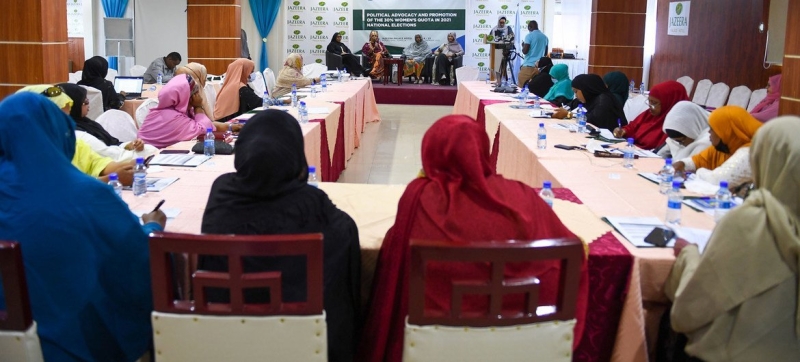
Women candidates for the lower house of Somalia’s parliament take part in a political forum. The number of female parliamentarians is growing worldwide, but little progress has been made Women
The share of women in the world’s parliaments has reached 26.9 percent, according to the latest estimates by the Inter-Parliamentary Union (IPU). Over the year, this figure increased by 0.4 percent, which corresponds to the growth rate in 2022. At the same time, in 2020-2021, the number of women deputies increased a little faster – by 0.6 percent per year.
The IPU report is based on updated data including the results of the 2023 parliamentary elections and appointments in 52 countries. 27.6 newly elected MPs around the world are women. This is 1.4 percent more than in previous surveys.
Women’s representation increases
Globally, the proportion of female speakers of parliaments increased to 23.8 percent (up 1.1 percent). Cambodia and Côte d’Ivoire elected their first female speakers in 2023.
Well-designed and implemented quotas continue to be an important factor in increasing women’s representation. The 43 houses of parliament that had some form of quota elected an average of 28.8 percent of female MPs, compared to 23.2 percent in countries without quotas.
North and South America lead among regions
In the Americas, women accounted for 42.5 percent of all deputies, elected or appointed in the houses of parliaments renewed in 2023, the highest among regions of the world.
Thus, the Americas retained their leading position, bringing the total number of women parliamentarians in the region to 35.1 percent.
Sub-Saharan Africa recorded the highest progress among all regions – an increase of 3.9 percentage points in the 2023 elections compared to previous elections. The greatest gains in performance were achieved in Benin, Eswatini and Sierra Leone, in particular due to quotas.
Countries leading in the number of women parliamentarians
Among countries in the world IPU ranking, Rwanda continues to lead: women occupy 61.3 percent of seats in parliament, behind followed by Cuba (55.7 percent) and Nicaragua (53.9 percent).
In Andorra, Mexico and the United Arab Emirates, according to IPU estimates, the number of female deputies and male deputies is equal.
Post-Soviet space
According to the results of the parliamentary elections in Turkmenistan, the number of women deputies increased by 0.8 percent, the Ministry of Railways reports, and in the lower house of the parliament of Kazakhstan, this the indicator, on the contrary, decreased by 8.7 percent.
In Estonia, Kaja Kallas was re-elected as Prime Minister, and Evika Silina was elected Prime Minister of Latvia for the first time. As a result, all three Baltic countries – Estonia, Latvia and Lithuania – ended 2023 with female prime ministers.
Gender issues dominated many elections
The IPU report finds that many of the 2023 elections – amid a backdrop on women’s rights – were dominated by gender issues, especially related to women’s reproductive rights.
The issue of reproductive rights has taken center stage in Poland’s elections, following a 2020 court ruling that severely limited women’s access to abortions. It was followed by mass protests across the country. The report suggests that this was one of the main factors that led to the ruling party’s defeat. of women MPs, which we see in all parts of the world, is unacceptable. Women are speaking out and supporting each other, and more male allies are joining the fight against gender discrimination and violence,” said Cynthia Lopez Castro, President of the Bureau of Women Parliamentarians of the IPU.
On the other hand, Javier Miley was elected President of Argentina in 2023 and promised to hold a referendum to repeal the country’s progressive abortion laws passed in 2020.
Women who left politics
The report also notes that several prominent women left politics in 2023, citing to threats and burnout. Among them is former New Zealand Prime Minister Jacinda Arden, who announced she would step down in January 2023.
A few months later, Sanna Marin, former Prime Minister of Finland , who was ousted from power in April elections, also resigned as an MP and decided to leave politics. Several prominent Dutch female MPs also resigned.
Read also:
INTERVIEW | “Women are not forgiven for anything”: a study of hate speech in Kyrgyzstan
“This year we are seeing some growth and historic achievements for women in parliament, but we are also witnessing some worrying trends. Our data shows that women bear the brunt of hate in the political space, a trend that appears to be worsening with the advent of artificial intelligence. We must be vigilant and support parliaments as they step up and take action to create a safe space for both women and men,” said IPU head Martin Chungong.
